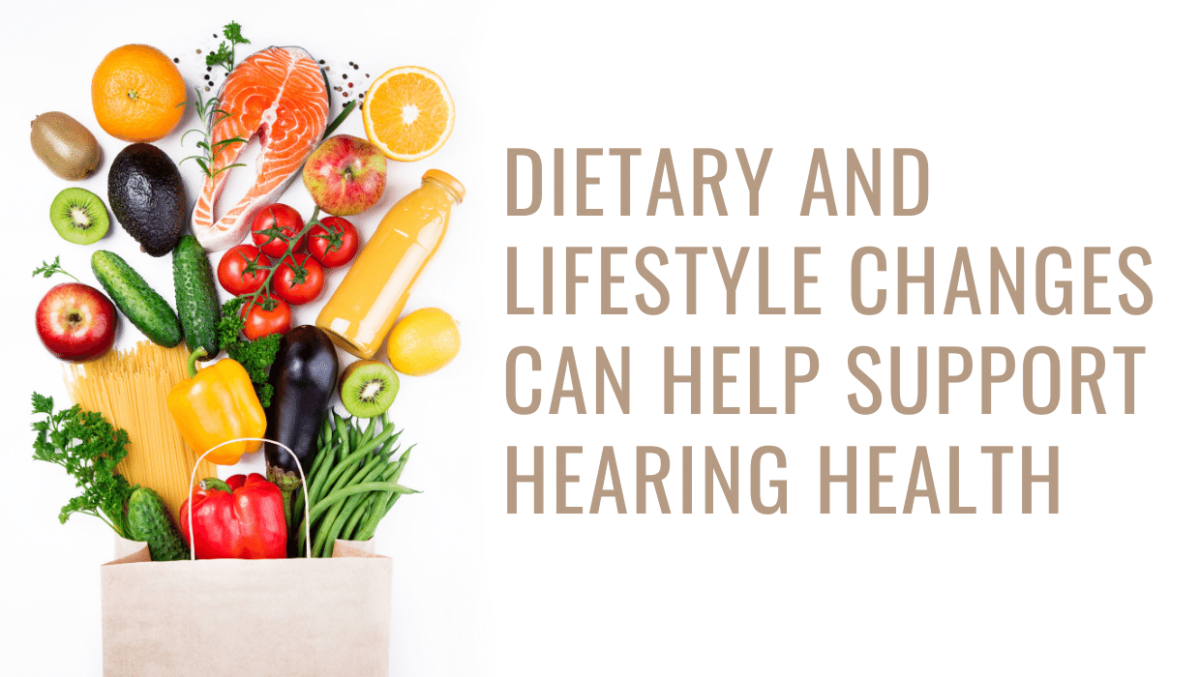The CDC named hearing loss is the third most common chronic physical condition in the United States, which makes it very important to be aware of. Your age and lifestyle can dictate the risk.
However there are several lifestyle changes you can do to prevent or delay damaging your hearing, even at an advanced age. Hearing loss can strike no matter how old you are, due to exposure to harmful noise that sometimes can’t be avoided, but another factor that puts our hearing at risk are lifestyle choices. Believe it or not, what you eat can make a huge difference on the status of your hearing.
A study in nutrition and hearing
We all have to eat, but what we choose to eat impacts our total health, especially as we age. Hearing loss affects 1 in 3 people over the age of 65 and half of those over 75. If you are approaching these age brackets then recent studies note the importance of eating healthy.
A study from the Brigham and Women’s Hospital in Boston, Massachusetts, surveyed over 70,000 women collected between 1991 to 2013 on their nutrition habits and compared them with instances of hearing loss. “We observed that those following an overall healthy diet had a lower risk of moderate or worse hearing loss,” stated author Sharon Curhan, MD, continuing, “eating well contributes to overall good health, and it may also be helpful in reducing the risk of hearing loss.” The study found that the women who ate a healthy diet were 30% less likely to struggle with hearing loss.
What exactly does eating healthy mean?
In this study the researchers identified the Mediterranean diet and the DASH (Dietary Approaches to Stop Hypertension) diet as the most successful diets in preventing hearing loss. Each of these diets recommend a high content of vegetables, fruits, nuts and seeds, whole grains, seafood, and poultry while avoiding sugar, salt, red meat and processed foods.
Nourishing healthy blood flow to the ears
This is in part because both these diets offer important nutrients and minerals, which can keep our blood pressure low and our heart healthy, helping to ensure a steady flow of blood to the ears. Our ears are very fragile and rely on a healthy, steady supply of blood to the ears to protect and nourish the fragile working parts. Any interruptions of blood flow due to high blood pressure, heart attack or stroke and can damage the ears along with so many other aspects of the body. The less foods we consume which inhibit blood flow the better of a chance we stand to maintain our hearing.
Nutrition for hearing
Minerals from the earth are absorbed by plant matter, which we can ingest to the benefit of our health. These minerals can give us the upper hand in preventing hearing loss. For instance foods like bananas, oranges, cantaloupe, honeydew, apricots, spinach, broccoli, potatoes and mushrooms are high in potassium which protects the cell walls in your inner ear and throughout the body.
As we age potassium levels tend to drop, so it is important to go out of your way to prioritize getting enough potassium rich foods in your later years. Eating plenty of green foods like spinach and broccoli contain many essential minerals for hearing health.
Folic acid, in many green vegetables, prevents the build up of the amino acid, homocysteine, which can restrict blood flow.
Zinc found in nuts, seeds and legumes can protect our immune system, protect our ears from devastating infections, and can also minimize the effects of ringing of the ear, known as tinnitus.
Magnesium, found in spinach, seeds and nuts can actually protect us from loud noise by fighting the free radicals, or atoms emitted by excessive noise.
Deal with you hearing today
The more energy you invest in a healthy diet the greater chance of being able to protect yourself from hearing damage in the coming years. If you suspect that you have hearing damage it is important to deal with the condition before it has a chance to get worse. Contact us to set up a hearing evaluation. We can help you understand the extent of your hearing ability and help you find solutions for years to come.

